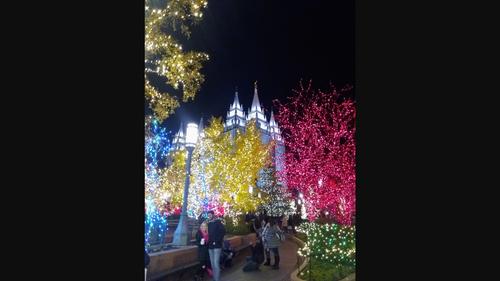From eco‐theology to eco‐skepticism: How American Latter‐day Saint environmental perspectives changed over time, and how they may change again
引用次数: 0
Abstract
Abstract Modern American members of the Church of Jesus Christ of Latter‐day Saints (aka LDS or Mormons) are among the most environmentally skeptical American groups, but it has not always been this way. The church has an exceptionally robust eco‐theology. In the 19th century, it espoused a strong “ethic of stewardship.” The review focuses on the story of how and why this shift from eco‐theology to eco‐skepticism occurred, shedding light on how theology, wider culture, and other forces can influence value creation, and how these changing values can transform the environmental attitudes and behaviors of an entire people. LDS eco‐theology shares some principles in common with some other Christian faiths, but also includes a number of unique or unusual beliefs and egalitarian/agrarian practices. In the early church (19th century), eco‐theology contributed to a value system which prioritized creation care. However, early LDS community land practices did not necessarily live up to these ideals and the local environment suffered serious consequences. Then, with an influx of external influences, including a growing population of non‐LDS frontiersmen, Latter‐day Saint values shifted away from creation care and egalitarianism and toward individualism and capitalism. Church leaders stopped regularly preaching about the earth's value, instead focusing on individual salvation. Environmental action antipathy and climate skepticism became the norm. This volte‐face demonstrates both how theology can influence values and actions, and the inverse. This article is categorized under: The Social Status of Climate Change Knowledge > Sociology/Anthropology of Climate Knowledge Perceptions, Behavior, and Communication of Climate Change > Perceptions of Climate Change

从生态神学到生态怀疑主义:美国后期圣徒的环境观点是如何随着时间的推移而改变的,以及它们可能如何再次改变
耶稣基督后期圣徒教会(又名LDS或摩门教徒)的现代美国成员是对环境最持怀疑态度的美国群体之一,但并非一直如此。教会有一种非常坚定的生态神学。在19世纪,它支持一种强烈的“管理伦理”。这篇综述着重讲述了从生态神学到生态怀疑主义的转变是如何发生的以及为什么发生的,揭示了神学、更广泛的文化和其他力量是如何影响价值创造的,以及这些不断变化的价值观是如何改变整个民族的环境态度和行为的。LDS生态神学与其他基督教信仰有一些共同的原则,但也包括一些独特或不寻常的信仰和平等主义/农业实践。在早期教会(19世纪),生态神学促成了一种优先考虑受造物的价值体系。然而,早期的LDS社区土地实践并不一定符合这些理想,当地环境遭受了严重后果。然后,随着外部影响的涌入,包括非后期圣徒边疆人口的增加,后期圣徒的价值观从创造关怀和平等主义转向个人主义和资本主义。教会领袖不再定期宣讲地球的价值,而是专注于个人救赎。对环境行动的反感和对气候变化的怀疑成为常态。这种转变既表明了神学如何影响价值观和行为,也表明了神学如何影响价值观和行为。本文分类如下:气候变化知识的社会地位;气候知识、感知、行为和气候变化传播的社会学/人类学对气候变化的认识
本文章由计算机程序翻译,如有差异,请以英文原文为准。
求助全文
约1分钟内获得全文
求助全文

 求助内容:
求助内容: 应助结果提醒方式:
应助结果提醒方式:


